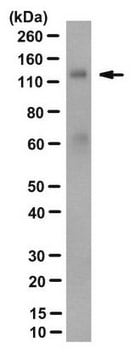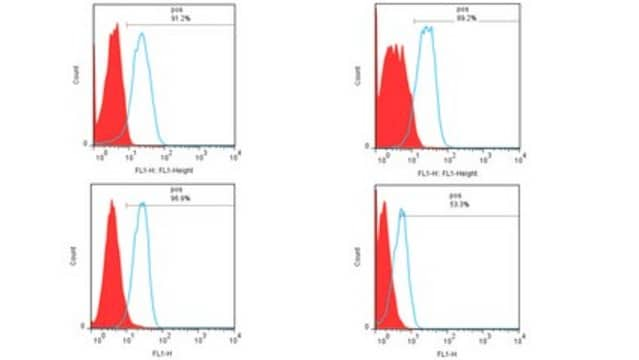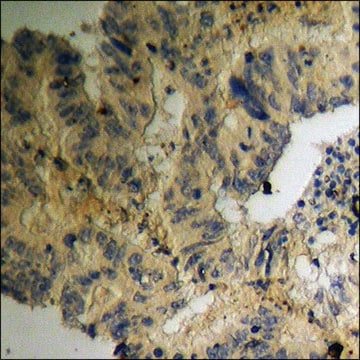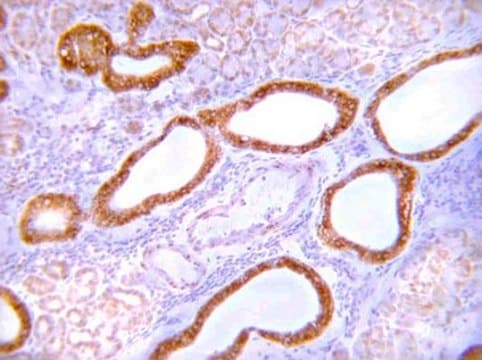Recommended Products
biological source
rabbit
Quality Level
antibody form
affinity isolated antibody
antibody product type
primary antibodies
clone
polyclonal
purified by
affinity chromatography
species reactivity
mouse
manufacturer/tradename
Chemicon®
technique(s)
ELISA: suitable
western blot: suitable
NCBI accession no.
UniProt accession no.
shipped in
dry ice
target post-translational modification
unmodified
Gene Information
human ... KL(9365)
General description
Animal models of human aging, which display the characteristic diseases associated with aging, provide insight into the cause of such diseases. Recently a transgenic mouse model, called Klotho, with several premature aging phenotypes has been described. They display premature aging phenotypes such as Osteoporosis, age related skin changes, ectopic calcifications, atrophy of genital organs and thymus, emphysema and short life span (Kuro-o et al., 1997). KL protein associated with the Klotho mutation is a 1014 amino acid long peptide. It has a putative signal sequence at its N-terminus and a single transmembrane domain near its C-terminus, which is postulated to anchor it to the membrane (Martin & Mian, 1997). The extracellular domain has two internal repeats, KL-1 and KL-2 which have 20-40% sequence identity to bacterial b-glucosidase of plants and animals and mammalian lactase glycosylceramidase suggesting a role for Klotho in sphingolipid metabolism (Martin & Mian, 1997). kl gene expression was observed to be tissue specific. Improvement of systemic aging phenotypes in kl/kl mice occurs even when the exogenous expression was limited to some organs, suggesting that KL associated aging is regulated through a humoral signaling pathway. KL has been reported to be localized on the cell surface when expressed on Cho cells (Kuro-o et al., 1997). Human kl cDNA is expected to encode a protein of 1012 amino acids and has 86% homology to mouse kl.
Specificity
Klotho
Other species have not yet been tested. The immunogen sequence is 82% conserved in human and 76% in rat klotho.
Immunogen
Synthetic peptide near the C-terminus of mouse Klotho.
Application
Detect Klotho using this Anti-Klotho Antibody validated for use in ELISA & WB.
Legal Information
CHEMICON is a registered trademark of Merck KGaA, Darmstadt, Germany
Not finding the right product?
Try our Product Selector Tool.
Storage Class Code
10 - Combustible liquids
WGK
WGK 2
Flash Point(F)
Not applicable
Flash Point(C)
Not applicable
Certificates of Analysis (COA)
Search for Certificates of Analysis (COA) by entering the products Lot/Batch Number. Lot and Batch Numbers can be found on a product’s label following the words ‘Lot’ or ‘Batch’.
Already Own This Product?
Find documentation for the products that you have recently purchased in the Document Library.
Fei Yan et al.
Molecular medicine reports, 22(2), 1035-1043 (2020-05-30)
Klotho is a type of single‑pass transmembrane protein that is important for the proper function of numerous organs. The aim of the present study was to investigate the role of Klotho in sepsis‑associated myocardial damage. In the present study, reverse
Our team of scientists has experience in all areas of research including Life Science, Material Science, Chemical Synthesis, Chromatography, Analytical and many others.
Contact Technical Service








